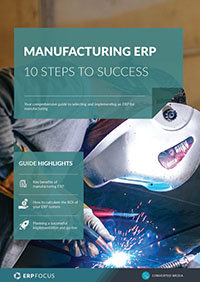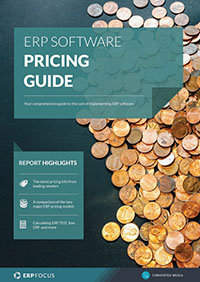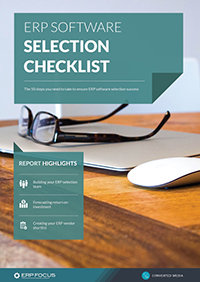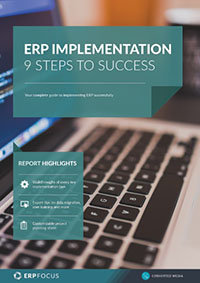ERP Supply Chain Management: Never Break the Chain
Clients, consumers and an uncertain economic outlook are forcing manufacturers and supply chain owners to squeeze every last drop of efficiency from their operations and ERP systems. Whatever your supply chain looks like – from a single small-scale factory to multinational network, it is most likely comprised of organized systems of people, technology and resources. Each of these critical cogs needs to be working at peak efficiency, but how do you achieve this, and how do you know when you’ve achieved it? There’s a number of ways to improve supply chain optimization (SCO) through ERP supply chain management; here’s a summary of what they are and how they can help move things forward for your business, your clients and your bottom line.
Supply Chain Optimization Itself
Let’s not overlook the seemingly obvious: SCO itself needs to be accepted as a force for good – one that can help drive profitability during a stagnant economic period and beyond. Supply chain optimization through ERP management allows your company to continuously analyze and monitor costs, time and quality. This helps guide management to make decisions that maximize performance across the supply chain.
Inventory Optimization
Your inventory is a balance sheet asset, so stock should be kept to the lowest levels while simultaneously guarding against out-of-stocks. ERP supply chain management can help you minimize cash tied up in ‘dead’ stock and keep your inventory processes fast, fluid and efficient.
Manufacturing Optimization
Inefficient use of raw materials and the resultant costly wastage is a source of great pain for supply chain manufacturers, hampering further expansion, plant optimization and growth. Manufacturing optimization – known as ‘lean manufacturing’ – aims to maximize customer value while minimizing waste, creating higher value from fewer and lower-cost resources.
Planning Optimization
Accurately predicting what and how many items a business will be selling in the future is the supply chain sector’s Holy Grail. ERP supply chain management can help forecast future demand, aiding production managers plan schedules and deliver products that flow to the customer without gathering dust in warehouses.
Look at the System as a Whole
Due to the complexity and diversity of modern supply chains, increasingly sophisticated processes are required to ensure total optimization. It is the essence of supply chain optimization to apply processes that will improve the operation of a supply chain in its entirety. With the help of a robust, trustworthy ERP software that takes in the wider view of the supply chain, planning cycles can be reduced, production scheduling enhanced, and the generation and management of purchase orders automated.
Everyone accepts technology can help supply chain managers make the best decisions, but this near-infinitely complex software can only be as effective as the individuals who built it. Whether you have employed all or just one of the above approaches, you’ll want to look for an ERP supply chain management system that’s designed by a team that understands your business. Only then can your supply chain ever attain the accolade ‘optimized’.
by Louise Thompson, SYSPRO
Free white paper

Manufacturing ERP: 10 steps to success
Complete step-by-step guide to manufacturing ERP software

Featured white papers
-

ERP Software Pricing Guide
Get the latest pricing information on over 80 popular ERP systems, and learn how to budget for your ERP project in our free guide
Download -

60-Step ERP Selection Checklist
Get the comprehensive checklist for your ERP selection project
Download -

ERP Implementation: 9 steps to success
The 9 proven steps you should follow when implementing ERP
Download
Related articles
-

ERP & Logistics: Optimizing the Supply Chain
Read about the steps you can take to optimize your supply chain through ERP software logistics ma...
-

CMMC Compliance: What Aerospace and Defense Manufacturers Need to Know
Key insights on CMMC compliance, deadlines, and securing DoD contracts with CMMC 2.0 certificatio...
-

ERP Automation Tips for Your Supply Chain
Learn about the stages in your company’s supply chain which can be optimized through ERP automation.

